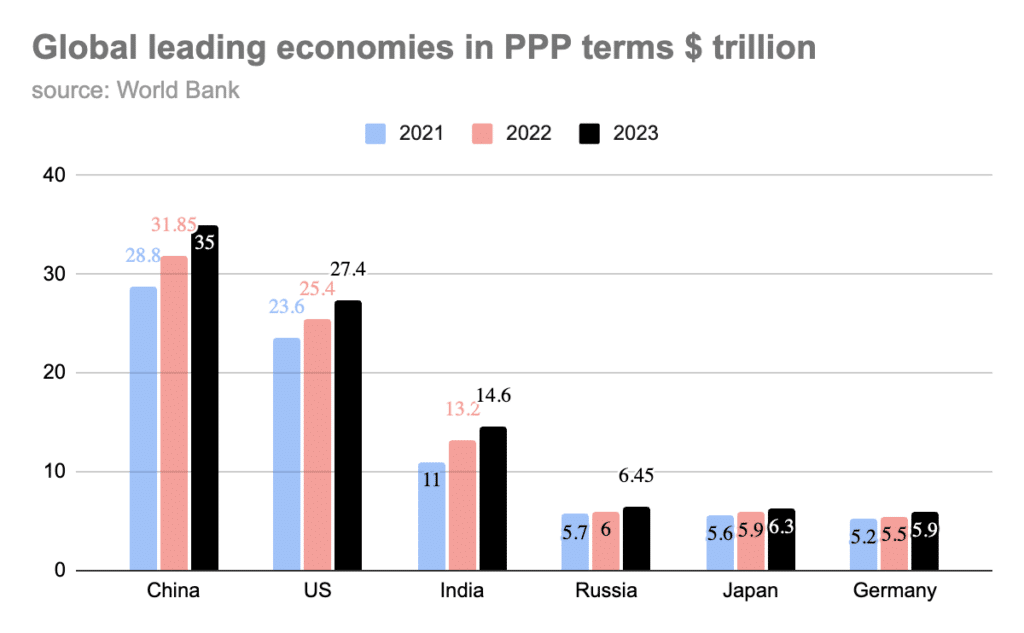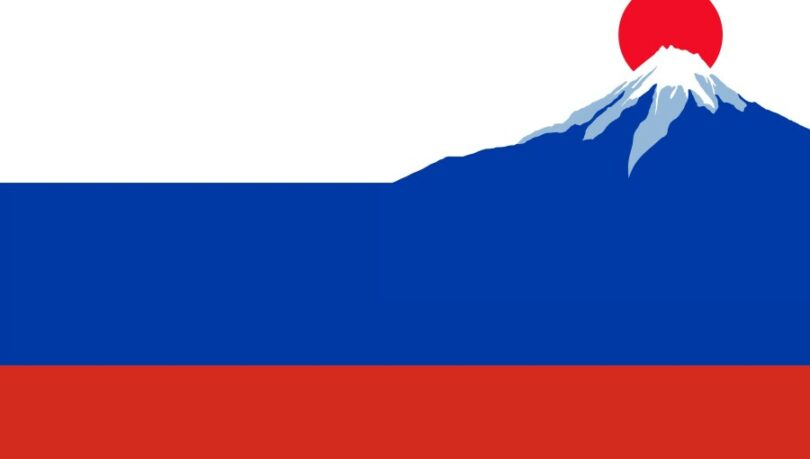The Russian economy has overtaken Japan to become the fourth largest in the world in PPP terms (purchase power parity), according to revised data from the World Bank released at the start of June.

As bne IntelliNews reported in August, Russia had already overtook Germany to become the fifth biggest economy in adjusted terms. Hit by multiple shocks recently and cut off from cheap Russian gas, Germany is now stagnating and has fallen to sixth place in the World Bank’s ranking.
PPP GDP measurement is preferred by many economists, as it takes into account the difference between local prices and nominal prices, similar to The Economist’s famous Big Mac index: a burger in Moscow costs about half as much as the same burger in New York.
The World Bank has improved Russia’s ranking after revising its data and says that Russia actually overtook Japan in 2021 and has maintained its position at number four since then. Its previous calculations were based on 2017 data but these have now been updated to reflect the 2021 figures.
Previously, Russian President Vladimir Putin set his government the goal of producing economic growth ahead of the global average. Before the war in Ukraine started, Russia’s economic growth was well behind that of the global average and close to stagnation. However, following the invasion of Ukraine in 2022, the economy has been enjoying a military Keynesianism boost and is currently the fastest growing major economy in the world.
And Russia has overtaken Japan ahead of schedule. Putin explicitly set his government the goal of attaining fourth place among the world’s largest economies in terms of PPP earlier this year, and the Cabinet was instructed to prepare measures to achieve this goal by March 31, 2025.
By breaking off relations with the West Putin has made a big bet on the Global South Century, where most of the developing countries are growing much faster than the West. Currently China and India are in the number one and three slots in the global ranking in PPP terms but both are expected to become the leaders in nominal terms as well over the next three or four decades. Most of the fastest growing economies from lower down the list are also from the Global South.
As bne IntelliNews has extensively reported, Russia has changed its economic model and after decades of austerity began to invest heavily, spurring growth in a new Putinomics. At the same time as investment is pouring into the military industrial complex, Putin has also launched the National Projects 2.1 programme to invest into the civilian economy as well and improve the quality of life for the average Russian, as he made clear in his recent guns and butter speech. And the war is proving to be a boon for Russians, as Russia’s poorest regions have been the biggest winners and as bne IntelliNews recently reported, the country’s despair index has fallen to its lowest level ever this year – the sum of inflation, unemployment and poverty.
As a result of these changes, economists estimate that Russia’s growth potential has increased from 1-1.5% pre-war to around 3.5% now. Last year, Russia’s economic growth caught analysts off guard with a 3.6% expansion. This year the World Bank has already almost trebled its forecast for growth from 1.1% to 3.2%. Russia’s Economic Ministry is similarly bullish.
Even the World Bank’s PPP adjusted size of the economy may be an underestimate. The World Bank also estimates that 39% of Russia’s economy is in the shadows, while the shadow economy only makes up 10% of Japan’s economy, which would add an additional $2.5 trillion to Russia’s $6.4 trillion PPP adjusted economic size – still not enough to overtake India’s $14.6 trillion PPP adjusted GDP value, but widening the gap with Japan further.

